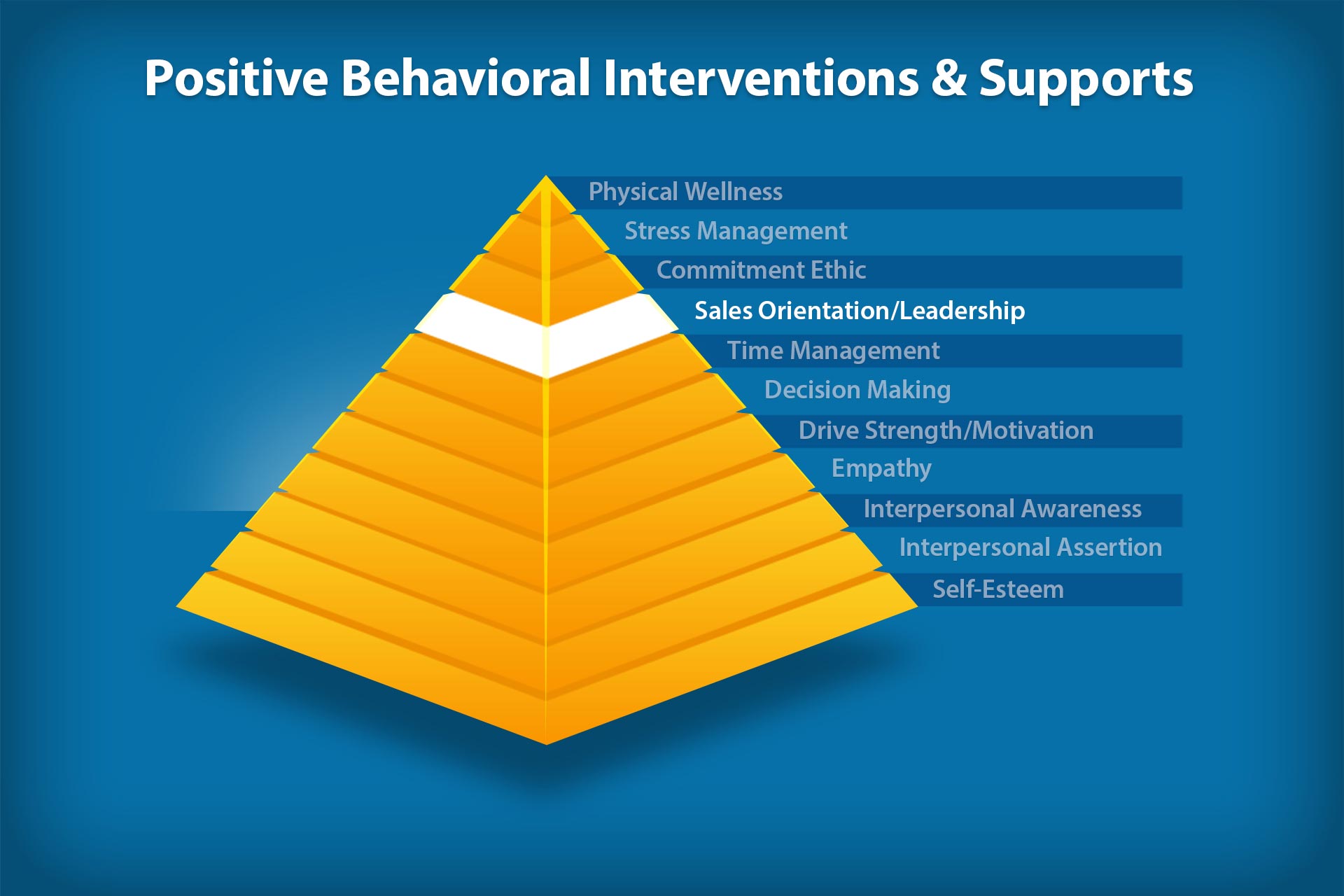
Defining Sales Orientation and Leadership
For many years, we at The Conover Company have grouped sales orientation with leadership. The two are fundamentally the same. Consider the following definitions:
Leadership is the ability to clearly express to others your vision or ideas about how to do something, get them to accept and do it on their own.
Sales Orientation is really leadership, as it is the ability to sell your ideas, thoughts and feelings to others. It is the act of getting others to accept or go along with what you are selling.
Leadership, PBIS and Social/Emotional Learning
Positive Behavioral Interventions and Supports (PBIS) is a term used to describe the proactive approach to establishing the behavioral supports needed for students to achieve social, emotional and academic success. This definition brings together the worlds of academic instruction and behavioral interventions. The PBIS framework is used because school leaders realize that academic performance cannot be separated from social/emotional learning. The eighth step in our Success Profiler’s Personal Skills Map®, our core assessment for social/emotional learning, is Sales Orientation/Leadership.

Sales orientation/leadership is a relatively sophisticated social/emotional skill. It requires the development of all of the skills under it (Step 1–Step 7). It is the combination, as well as the application, of these more basic social/emotional skills. In order for an individual to learn leadership skills, one must first possess the following:
Self-Esteem – a level of satisfaction with your current attitudes, beliefs and general behavior.
Interpersonal Assertion – the ability to insist on one’s rights in a positive or good way.
Interpersonal Awareness – the ability to show a true understanding of yourself and others.
Empathy – the ability to communicate and lead by understanding the thoughts, views and feelings of others.
Drive Strength/Motivation – the skill of learning, understanding and using your desire to reach school, job and personal goals.
Decision Making – using problem solving skills to discover and choose a course of action most likely to get the best results.
Time Management – the ability to use your time well and to finish things you have to do.
All seven of these skills measured by our Personal Skills Map build upon each other, much like steps, leading to sales orientation/leadership. When you skip a step, things start to fall apart.

While it is easy to see why leadership is important for a teacher, one must realize that leadership is a core element in gaining students’ confidence and respect by the teacher. Without it, the students’ learning experience is greatly weakened. Perhaps one of the most important, as well as difficult, tasks a good teacher has is to help create a reason to learn for students. Subject matter experts are not teachers unless they can create this connection. This is especially true for at-risk students. This connection comes from leadership, or the ability to clearly express your vision or idea of how to do something to others, and get them to accept it and do it on their own.
Leadership is Not Just for Teachers
Just as leadership is needed by the teacher, it is also needed by the student. Did you ever hear someone say the best way to learn something is to teach it to others? Although not all students will become teachers, it is important in the learning process for each student to clearly express his or her vision of how to do something to others and get them to accept it and do it on their own (recall our definition of leadership; Leadership is the ability to clearly express to others your vision or ideas about how to do something, get them to accept and do it on their own).

But, just knowing about Leadership isn’t going to translate into positive outcomes for your program. If you really want to see results, you need to apply this information in a way that will help the individuals you work with set goals, manage their emotions, and develop the workplace readiness skills they need to be successful in today’s information economy.
If you need help connecting PBIS to meaningful outcomes, we’ve developed social/emotional learning standards that you can download for FREE. These standards are research-based and organized by stage of life, so you can easily identify which skills to work on with your users or students.
If you’d like to download our soft skills standards you can find them here:
